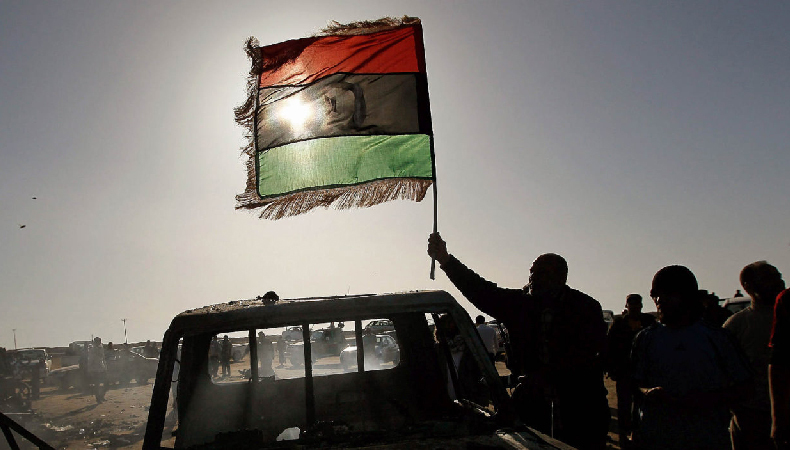Libya: Unifying Two Governments and Political Deadlock

The world is waiting and watching for Libya to swiftly hold national elections, presidential and parliamentary, that have been delayed since 2021. Since the fall of the Muammar Qaddafi in 2011, the country has sunk politically and economically.
The US and the United Nations have failed to stabilize the once oil-rich country that was once vouched for as an economy to look out for in North Africa. Torn between two governments and riddled with militia groups, Libya politics is struggling.
Armed groups and political factions have divided Libya into fiefdoms. According to Crisis24, porous borders, the absence of a cohesive governing body, and unified security forces provide an opportune environment for militant organizations still active in the increasingly unstable Sahel region.
Libya Torn Between Two Governments
Political commentators believe reconciliation is a prerequisite for a peace that gives Libyans hope for the future. Libya is presently being ruled by two governments, an Islamist-backed one in Tripoli, and an internationally recognized one in Tobruk. These two governments agreed to form of Libya ‘Government of National Accord’ in 2015.
However, it failed to stop the fighting and the two Libya governments remain divided. Libyans continue to call for the two political authorities to quit and hold elections. A senior UN official says Libya needs more than ever to close the current page of institutional fragmentation. He called for an inclusive political agreement that would make way for peaceful and transparent elections across the country.
Abdoulaye Bathily, Special Representative of the Secretary-General and Head of the United Nations Support Mission in Libya (UNSMIL), urged the country’s two chambers to finalize and make electoral laws implementable towards a reasonable electoral timeline. “The electoral landscape should be a level playing field for all candidates.” He highlighted the Libyans need for unified political, military, security and economic institutions to safeguard the territorial integrity and national identity of the country.
Keep Reading
Libyan FM Flees Libya After ‘Secret Meeting’ With Israeli Minister
Libya Floods: More than a Decade of NATO Bombings and Chaos
Libya Elections Unlikely
But as the year 2023 comes to an end, elections seem unlikely to materialize. Focus appears to be shifting back toward the previously abandoned process of demobilization, disarmament and reintegration, as part of the broader security sector reform.
Hafed al-Ghwell, MENA region expert, says a monolithic demobilization, disarmament and reintegration approach could do harm than good in a country where political power is not only divided but also deeply stratified. He believes a tailored, context-specific form of demobilization, disarmament, and reintegration that offers flexibility and local adaptability might well prove to be an innovative and even revolutionary – approach to achieving a sustainable peace in Libya.
Hafed said the evolution and influence of armed groups in Libya are intertwined with community engagement. “For any demobilization, disarmament and reintegration efforts to succeed, government actors and civilians must be empowered to shape a strategic, inclusive and sustainable action plan. This requires support for efforts to develop the necessary resources, skills and mechanisms needed to spearhead a comprehensive initiative.”




